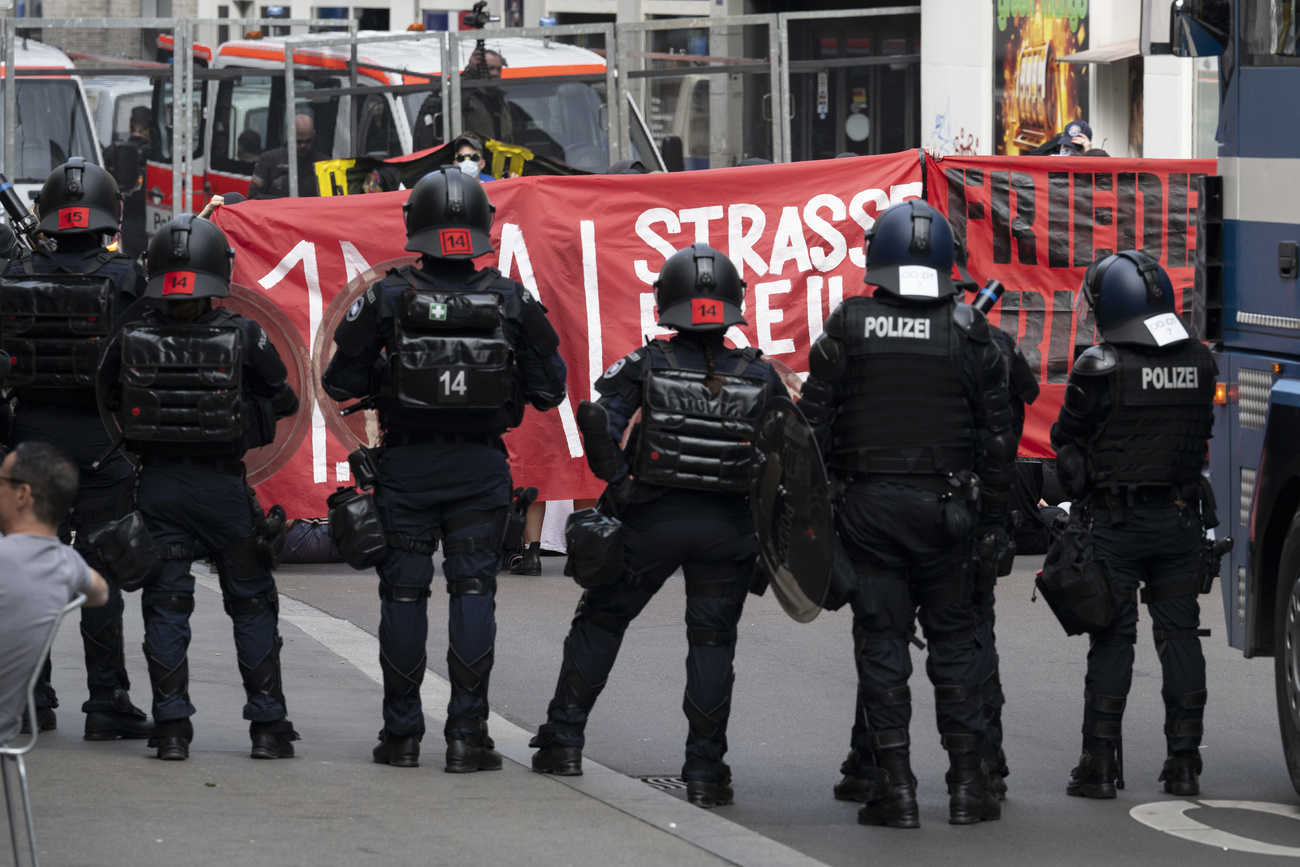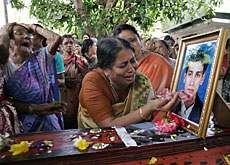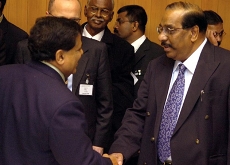Expectations low ahead of Sri Lanka talks

The Sri Lankan government and Tamil Tiger rebels are to hold two days of talks in Geneva this weekend against a backdrop of escalating bloodshed.
The two sides met in the city in February when they agreed to stop all forms of violence but since then the country has slipped towards renewed civil war amid recriminations on both sides.
Both the government and Liberation Tigers of Tamil Eelam (LTTE) blame each other for the upsurge in fighting that has seen up to 1,000 combatants and civilians killed since July.
Although they insist the 2002 ceasefire – brokered by Norway – remains in place, there is open conflict in the north and east of the country, with daily attacks and a rising death toll.
Earlier this month a suicide bomber rammed a truck loaded with explosives into a navy convoy killing 95 sailors, in what was the deadliest single attack since the ceasefire.
The Sri Lankan military has launched major land, sea and air offensives in response to attacks by rebels, who are fighting for a separate homeland.
Many believe that the best that can come out of the Geneva meeting, which is being hosted by the Swiss and facilitated by Norway, is that both parties agree to hold further talks – a view shared by the head of Sri Lanka’s peace secretariat, Palitha Kohona.
“I think it [the goal] is for the two parties to continue being engaged in the discussions, because, as we all know, this conflict has lasted for over 25 years and we don’t expect it to be resolved in a hurry,” he told swissinfo.
“There are difficult and very complicated issues, and we will be very happy if discussion continues for another round or a few rounds.”
Return to violence
Kohona strongly denied that the government was responsible for the swift return to violence after the February talks, which were the first between the two sides in three years. He said the LTTE had not been interested in a cessation of hostilities, despite assurances to the contrary in Geneva.
He argued that the government had exercised restraint in the face of “a massive campaign” by the Tigers until the assassination attempt on army chief Sarath Fonseka at the end of April. Talks scheduled for Geneva the same month were cancelled because of the fighting.
But while admitting that both sides were still at loggerheads, Kohona stressed that the prospects for peace were far from dead.
“The government is determined to bring this conflict to an end through peaceful means, through negotiations, and we hope that the LTTE has a similar objective,” he said. “We hope that they have come to Geneva with a view to achieving a peaceful end to this utterly, utterly unnecessary conflict.”
Anton Ponrajah, head of the Swiss Federation of Tamil Associations, said a key rebel demand would be for the government to lift an “economic blockade” of the Jaffna peninsula and the northeast. He said this was causing a major humanitarian crisis.
The government claims it is the LTTE that is responsible for impeding the flow of food and other supplies into these areas.
“The humanitarian situation, especially in the northeast, should be addressed immediately by the government,” he told swissinfo. “The army also has to stop the killing of civilians, which has increased.”

More
Good offices
Paramilitary groups
Ponrajah, who is also secretary-general of the Geneva-based International Federation of Tamils, said the Sri Lankan government was guilty of failing to honour pledges made in February to cease all forms of violence and to stop arming paramilitary groups.
He denied that the Tigers were responsible for the return to what he conceded was all-out war, saying the rebels were simply defending themselves against army attacks.
“Without implementation of these agreements [to stop the violence], there can’t be progress,” he told swissinfo. “But we have to be optimistic that there will be progress, otherwise there is no point in talking.”
Ponrajah insisted that the LTTE was committed to a peaceful solution and he hoped that the international community would pressure the Sri Lankan government to ensure this happened.
“The government has to work out how the Sinhalese and Tamil peoples can live together, because after 60 years we are no closer to resolving the issue and the gap is becoming wider,” he said.
swissinfo, Adam Beaumont in Geneva
The Swiss government is providing logistical support for the meeting, which is being facilitated by Norwegian diplomats.
Swiss ambassador Heidi Tagliavini will open the talks on Saturday alongside Norway’s minister for international development, Erik Solheim.
In March this year the Swiss government doubled its aid commitment for post-tsunami reconstruction in Sri Lanka, pledging a further SFr10.9 million ($8.7 million).
But the return to violence has seriously disrupted relief and reconstruction work in conflict areas – 17 aid workers were shot dead in the northeast in August.
Civil war broke out in 1983.
65,000 people were killed before a Norwegian-brokered truce in 2002.
The rebels want a self-ruled homeland for the country’s minority Tamils.
The government says it can offer autonomy, but not a separate state.
More than 35,000 Sri Lankans, mostly Tamils, live in Switzerland.

In compliance with the JTI standards
More: SWI swissinfo.ch certified by the Journalism Trust Initiative











You can find an overview of ongoing debates with our journalists here . Please join us!
If you want to start a conversation about a topic raised in this article or want to report factual errors, email us at english@swissinfo.ch.